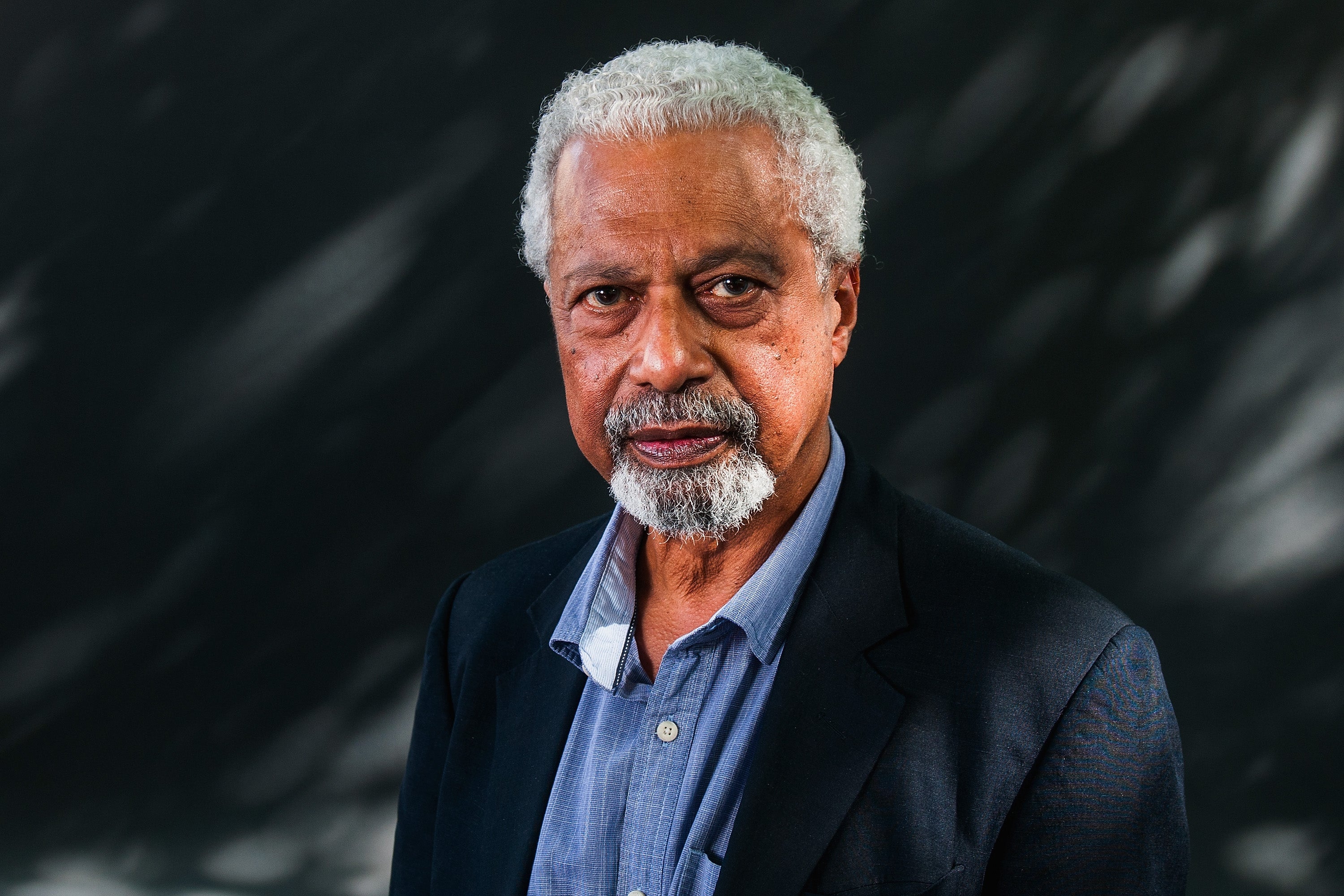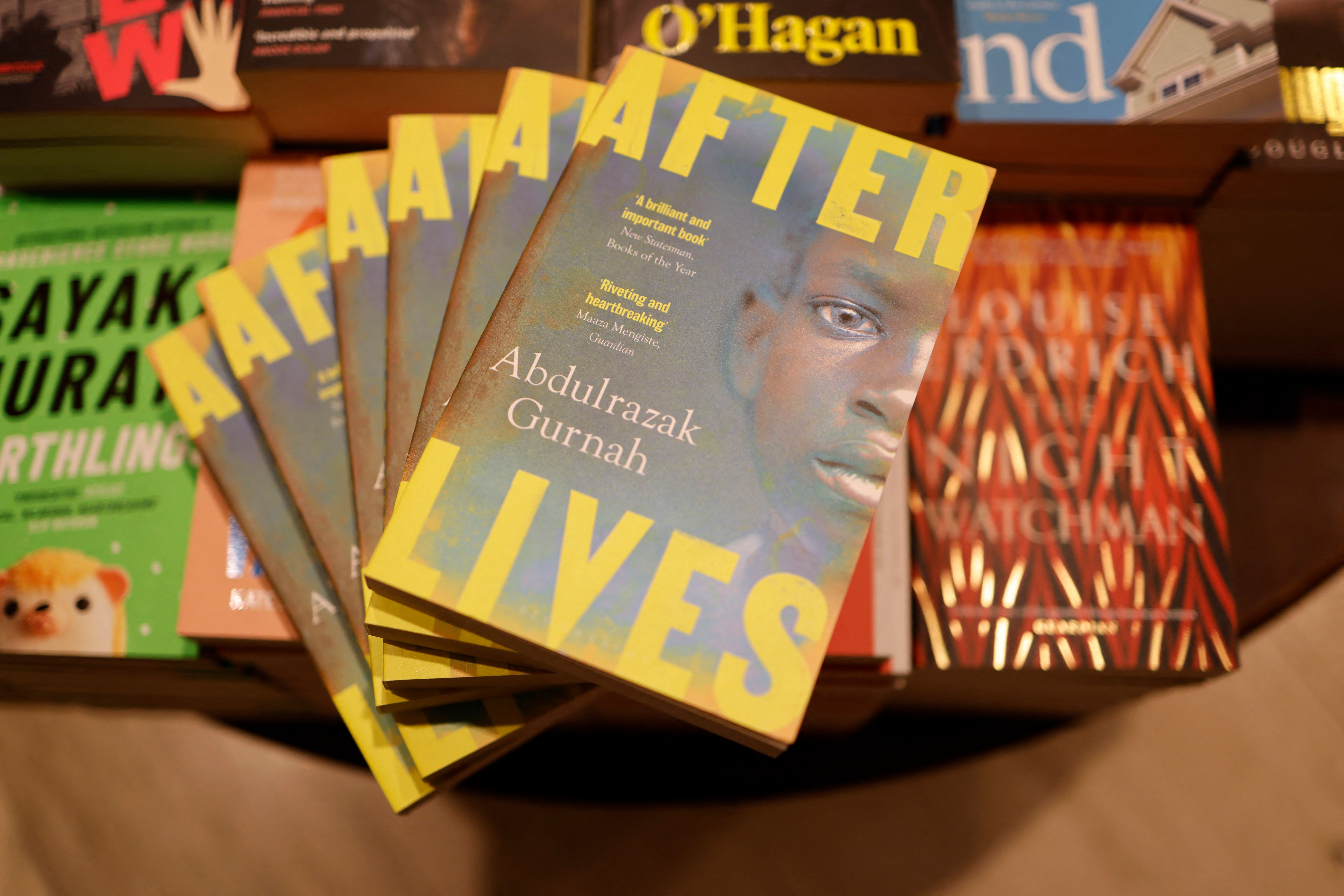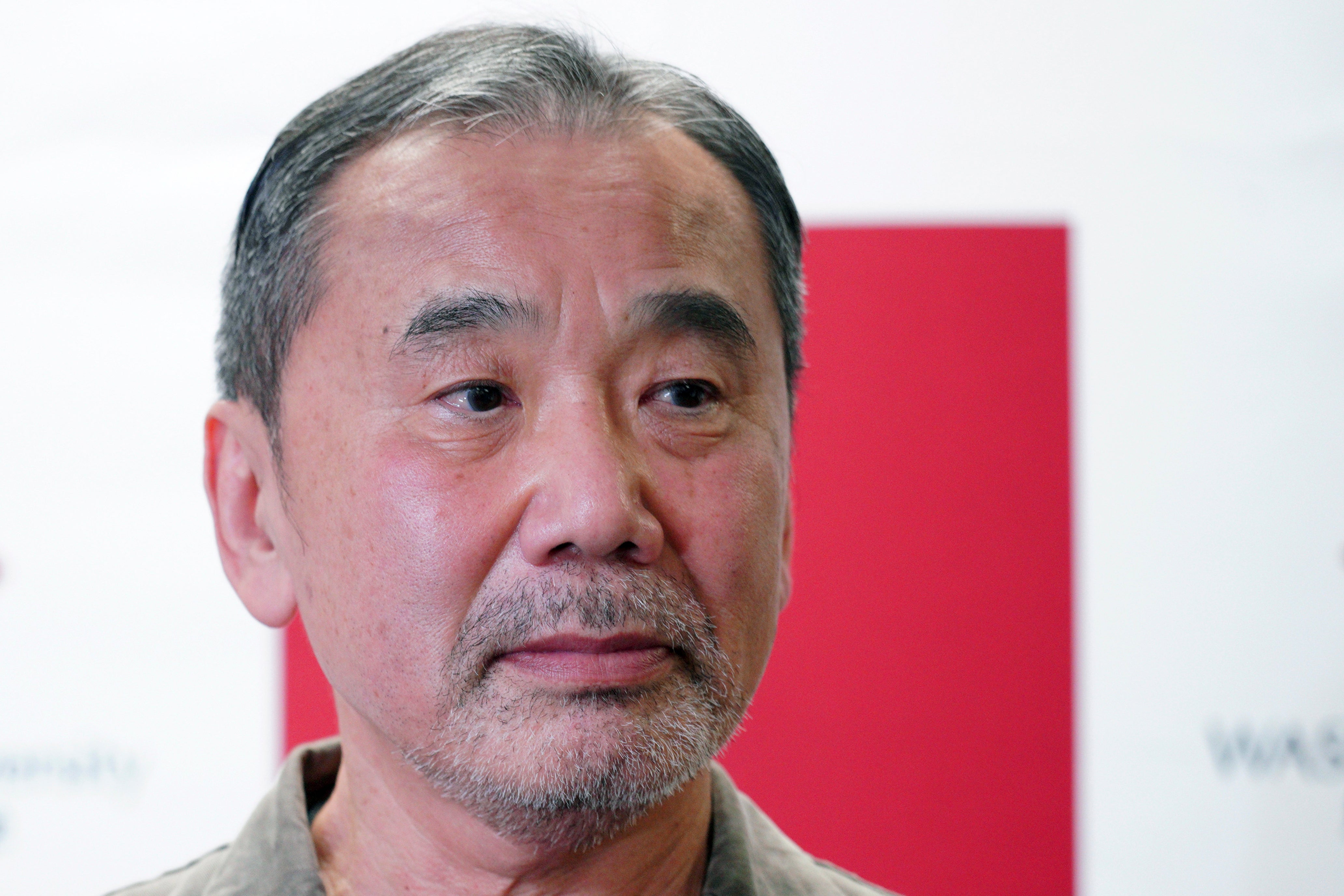Nobel prize for literature 2021 awarded to Zanzibar-born novelist Abdulrazak Gurnah
UK-based author, who came to England as a refugee aged 18, was described as ‘a passionate observer of the human predicament’
Novelist Abdulrazak Gurnah has been announced as the winner of the 2021 Nobel prize for literature.
The Tanzanian, UK-based author won “for his uncompromising and compassionate penetration of the effects of colonialism and the fate of the refugee in the gulf between cultures and continents”.
The announcement was made during a ceremony held by the Swedish Academy in Stockholm on Thursday.
Born in Zanzibar in 1948, Gurnah arrived in England as a refugee in the late Sixties. The author of 10 novels and a number of short stories, he was professor of English and postcolonial literatures at the University of Kent, Canterbury, until his recent retirement.
Celebrating his win, the Swedish Academy observed how the theme of the refugee’s disruption runs through his work. With Swahili being his first language, Gurnah began writing as a 21-year-old in English exile, but ultimately turned English into his “literary tool”.
“Abdulrazak Gurnah consciously breaks with convention, upending the colonial perspective to highlight that of the indigenous populations. Thus, his novel Desertion (2005), about a love affair, becomes a blunt contradiction to what he has called ‘the imperial romance’,” the academy said.

“His dedication to truth and his aversion to simplification are striking. His novels recoil from stereotypical descriptions and open our gaze to a culturally diversified east Africa unfamiliar to many in other parts of the world.
“In Gurnah’s literary universe, everything is shifting – memories, names, identities. An unending exploration driven by intellectual passion is present in all his books, and equally prominent now in Afterlives (2020) as when he began writing as a 21-year-old refugee.”
The statement added: “In Abdulrazak Gurnah’s treatment of the refugee experience, focus is on identity and self-image. Characters find themselves in a hiatus between cultures and continents, between a life that was and a life emerging; it is an insecure state that can never be resolved.”

Memoirist Annie Ernaux, considered one of France’s finest living writers, was considered a strong favourite to win. Other contenders included Canadian poet Anne Carson and Norwegian author and playwright Jon Fosse.
However, winners of the Nobel prize for literature – regarded as the most prestigious literary award in the world – are notoriously hard to predict.
Writing for the New Republic ahead of the announcement, Alex Shephard observed how the prize’s “abysmal record on diversity” had become a good, albeit depressing, way to guess the identity of the winner.
“Though the prize has been awarded 117 times, only 16 women have won,” he wrote. “A Black African writer has not won in my lifetime. The prize has been awarded to Europeans 14 times this century – this despite the Nobel committee’s vocal emphasis on greater diversity and its quasi-public apologies for the prize’s well-earned reputation for Eurocentrism.”
However, he caveated this by joking that he was “exceedingly bad” at guessing the winner, saying: “I never get this right”.
In the same piece, he observed the running joke that Japanese author Haruki Murakami had been considered a contender for the prize each year for over a decade, and had never won.
“Murakami remains the betting favourite because he is among the most popular writers of literary fiction,” he said. “And yet his status as – arguably – the most famous international writer of literary fiction is almost certainly what will keep him from winning the Nobel.”

Last year’s prize went to American poet Louise Glück, for what the judges described as her “unmistakable poetic voice that with austere beauty makes individual existence universal”.
Glück was a popular choice after several years of controversy. In 2018 the award was postponed after sex abuse allegations rocked the Swedish Academy, the secretive body that chooses the winners.
The awarding of the 2019 prize to Austrian writer Peter Handke also caused protests because of his strong support for the Serbs during the Balkan wars in the Nineties.
The prestigious award comes with a gold medal and 10m Swedish kronor (£838,000). The prize money comes from a bequest left by the prize’s creator, Swedish inventor Alfred Nobel, who died in 1895.
On Monday, the Nobel committee awarded the prize for physiology or medicine to Americans David Julius and Ardem Patapoutian for their discoveries in relation to how the human body perceives temperature and touch.
The Nobel prize for physics was awarded on Tuesday to three scientists whose work found order in seeming disorder, helping to explain and predict complex forces of nature, including expanding our understanding of climate change.
Syukuro Manabe of Japan, Klaus Hasselmann of Germany and Giorgio Parisi of Italy were awarded the prize by the Royal Swedish Academy of Sciences.
Manabe, 90, and Hasselmann, 89, were commended for their work in “the physical modelling of Earth’s climate, quantifying variability and reliably predicting global warming”.
The second half of the prize was awarded to Parisi, 73, for “the discovery of the interplay of disorder and fluctuations in physical systems from atomic to planetary scales”.
Benjamin List and David WC MacMillan were named as laureates of the Nobel prize for chemistry on Wednesday, for finding an easier and environmentally cleaner way to build molecules that can be used to make compounds, including medicines and pesticides.
Still to come are Nobel prizes for outstanding work in the fields of peace and economics.
Additional reporting by the Associated Press
Join our commenting forum
Join thought-provoking conversations, follow other Independent readers and see their replies
Comments
Bookmark popover
Removed from bookmarks